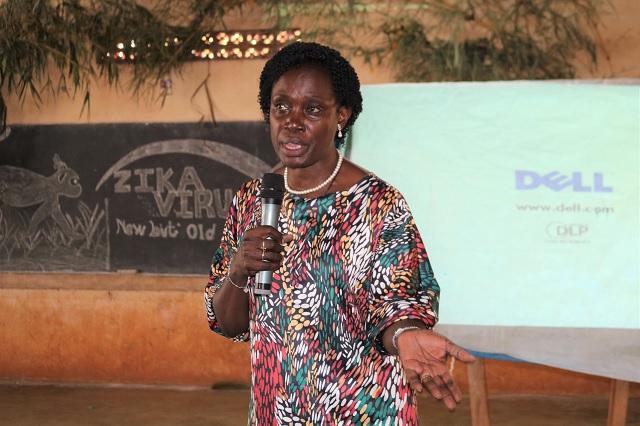
Kampala, Uganda | THE INDEPENDENT | Uganda has launched the start of epilepsy surgery to be undertaken by Ugandan doctors as the country commemorated World epilepsy day on Tuesday.
Studies have shown that about 1 to 2 per cent of Ugandan’s population suffers from epilepsy, according to Makerere University School of Public Health. The disease, characterised by frequent seizures, is mostly common in parts of Eastern Uganda followed by the Central Region, and the Western Region, while the least figures have been recorded from the Northern Region.
Dr. Angelina Kakooza, a child Neurologist and an associate professor of paediatrics says that medics in Uganda have built the capacity to carry out epilepsy surgeries, a process that had initially started in Cure Hospital-Mbale by American doctors. The procedure removes an area of the brain where seizures occur.
Dr. Kakooza, however, adds that doctors will have to first examine patients to determine whether the surgery would be needed. For some, she says surgery may not be an option because such surgeries are most effective when seizures always occur in a single location in the brain but might be an option when at least two anti-seizure medicines have failed to control seizures.
The Executive Director of Butabika National Referral Hospital Dr. Juliet Nakku said that most people suffering from epilepsy do not seek treatment from medical facilities because of various myths and misconceptions about the disease.
Dr. Nakku observed a need to raise awareness about epilepsy to make sure that health workers, the public, and communities can understand that epilepsy exists in the communities and is a medical condition that can be treated medically.
“Epilepsy is not because someone has been bewitched that requires concoctions from the soil, but we have medicine in our health facilities to treat the disease right from health centre III up to referral hospitals,” Dr Nakku stated.
She added that with the start of epilepsy surgery in Uganda the neural surgeons will run tests and identify points in the brain that cause abnormal wave activity and cut them out so that the people who have undergone the surgery will no longer have seizures. She noted that the country has trained experts in this field to carry out this service.
Dr. Richard Idro, an Associate professor of paediatrics and child health at Makerere University said that they are collaborating with different institutions to make and train people here in Uganda so that the service can be beefed up when it starts.
International Epilepsy Day is celebrated each year on the 2nd Monday of February, to raise awareness about epilepsy, what it is, how it can be treated, and what is needed to bring treatment to all people who need it.
*******
URN
 The Independent Uganda: You get the Truth we Pay the Price
The Independent Uganda: You get the Truth we Pay the Price





